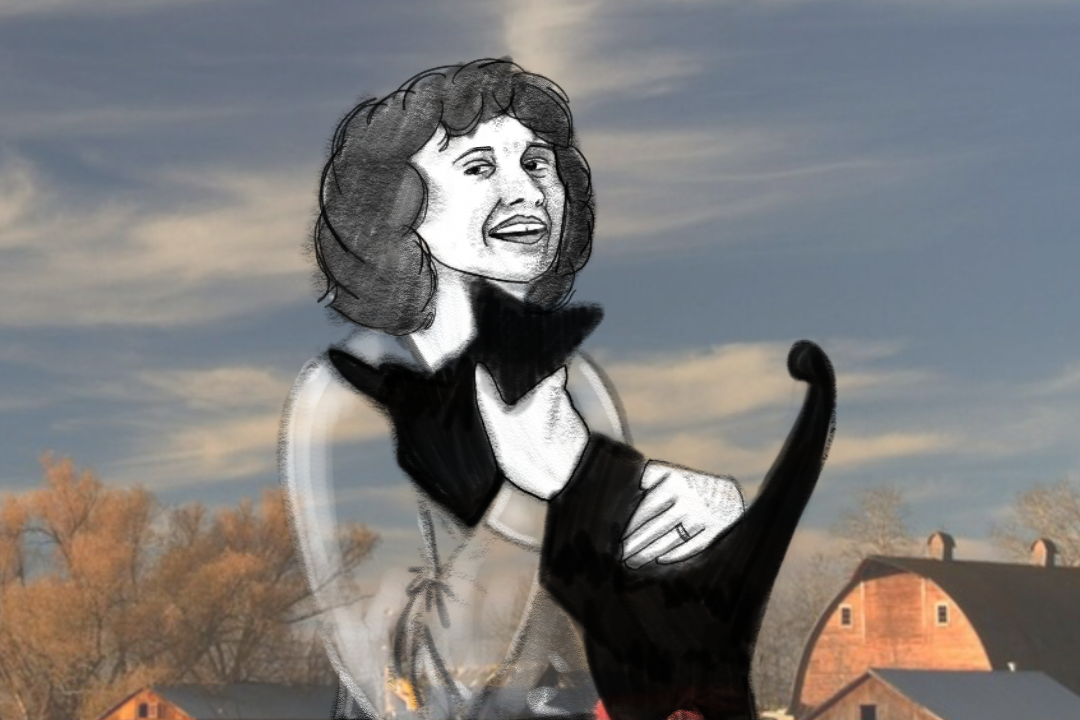Content Warning: This article mentions sexual abuse.
Alice Munro’s name is synonymous with the Canadian short story. She garnered outstanding critical success and received many of the most distinguished awards in the literary world, including the Nobel Prize in Literature in 2013. Munro’s stories consistently focused on rural Canadian life, despite her international popularity.
It is in this ostensibly utterly uninteresting setting where Munro unearthed beautiful stories that anatomized human nature and relationships. Her prose style remained intimately linked to the subject matter: brief and concise sentences that often expressed an acute small-town wisdom.
In a disturbing twist in July, Munro’s daughter Andrea Robin Skinner posthumously exposed her mother for staying with and protecting her second husband — the victim’s stepfather — after he sexually abused Skinner as a child. Readers must now reckon with how this accusation affects her legacy.
Munro’s life and work
Munro was born in 1931 in Huron County, southwest Ontario. The vast and varied plains and once-manufacturing powerhouse of rural Ontario is where most of her characters lived, though they were sometimes as bold as to venture into Toronto. In Munro’s works, Canada defined her stories and characters, and the stories and characters defined Canada. While Munro’s narrators and characters often take their setting for granted, the reader would be struck by how socially layered and emotionally complex country life and psychology is.
In 1968, early in Munro’s career, she became friends with another Canadian literary titan, Margaret Atwood. She witnessed Munro’s experience with prejudice and logistical troubles in getting published as a Canadian woman in the 50s and 60s. Remarkably, Munro stuck to writing about a superficially unexciting setting throughout her career. Atwood renders the utmost praise for Munro, writing for The Guardian in 2008 that, “She’s the kind of writer about whom it is often said — no matter how well known she becomes — that she ought to be better known.”
Munro’s stories usually carry women protagonists and feminist ideas. She wrote scrupulously and sensitively about the life and psychology of the small-town woman — and a meticulous examination of their love and sex lives in particular. In her 1988 short story “Five Points,” an immigrant teenager bankrupts her family by stealing money from their cash register to pay boys in her school for sexual favours.
In another short story, “The Bear Came Over the Mountain” from 1999, an elderly couple struggles with the wife’s dementia as the husband recalls the sex and adultery that has inundated their lives. Munro thoroughly exposes the couple’s surreptitious sexual world and its connections to public social calculations. As Atwood described in The Guardian piece on how, “a rumpled bed says more, in the hands of Munro, than any graphic in-out, in-out depiction of genitalia ever could.”
Munro was also concerned with how rural Canada changed over her lifetime. One of her last short stories, “Corrie” from 2010, examines the quiet decline of the manufacturing town. The titular Corrie is the heiress to the shoemaking factory that employs much of the town.
After her father dies, the business is bought out and shut down within years. In a poignant act, Corrie tries to turn the old factory into a museum that exhibits outdated shoemaking tools. A desperate cling to the life of her past, perhaps exposing a narrow understanding of what might be exhibition-worthy. After the museum shuts down, Corrie takes up librarian duties at the local Carnegie library, which is itself a relic in Canadian history, as not many people use the library anymore. The Anglican church, which Corrie’s father ordered to be restored 20 years ago and catalyzed Corrie’s love affair with its architect Howard, shut down.
Even the tremendous prejudices and conflicts between Anglicans and Methodists that governed the town years ago dissipate. Munro here laments the death of the Canadian town, where so much of the drama, emotions, love, and sex that she wrote about are set in and could only be set in.
To readers, Munro’s writing may be diminished by the recent revelations about ignoring her late husband’s sexual abuse of her daughter. Western University has already announced the decision to pause appointing the endowed chair position named after Munro. Despite a judicious and sensible treatment of sexual violence in her writing, Munro seems to not have brought that sentiment home.
In reference to the situation, Atwood told The Star that, “All I can add is that she wasn’t very adept at real (practical) life. She wasn’t very interested in cooking or gardening or any of that. She found it an interruption, I expect, rather than a therapy, as some do.”
Munro’s cruel treatment of her daughter leaves fans distrustful and wary of her fiction. The penetrating insight into the human soul displayed in her writing has failed to guide her to morally decent behaviour in her own life. Each reader can decide for themselves how much an author’s personal flaws affect the merit of their work, but Munro’s stories will never be the same again for anyone. Considering the severity of the allegation, Munro’s legacy is likely greatly and irreparably tarnished.
Alice Munro died in Port Hope, Ontario at age 92 on May 13, 2024



No comments to display.